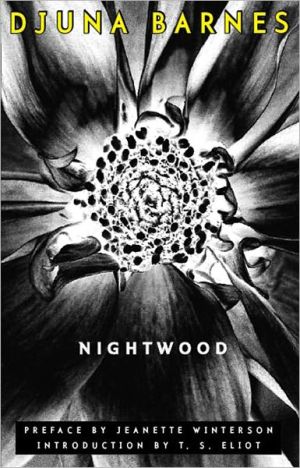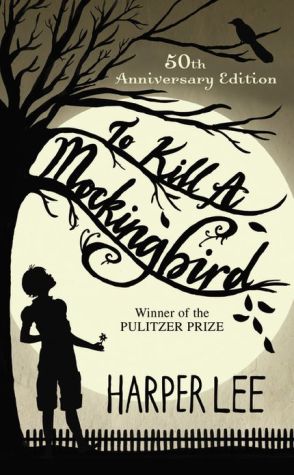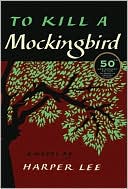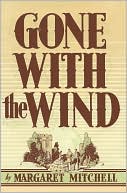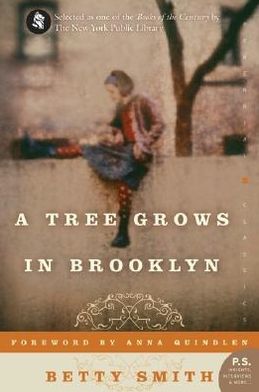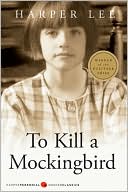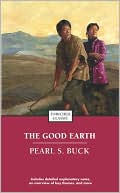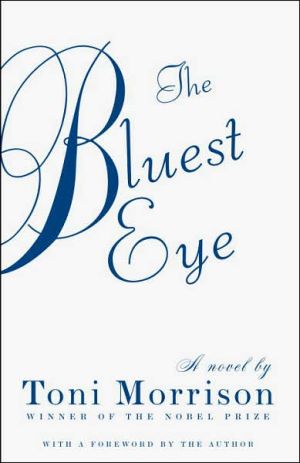Nightwood
"A novel of extraordinary and appalling force...a kind of symbol of sinister magnificence."—The New York Times\ "One of the greatest books of the twentieth century."—William S. Burroughs\ Nightwood, Djuna Barnes's strange and sinuous tour de force, has become a classic of modernist and lesbian literature since its first publication in 1936. Set in Paris, Berlin, and Vienna during the decadent period between the two World Wars, Nightwood "belongs to that small class of books that somehow...
Search in google:
The fiery and enigmatic masterpiece—one of the greatest novels of the Modernist era.Library JournalThe expatriate Barnes's 1936 novel was a breakthrough both as a work of modernist fiction and for its frank treatment of lesbianism. Although it no doubt raised an eyebrow or two, the original version had actually been toned down by T.S. Eliot. This edition restores much of the deleted material and includes facsimiles of early drafts as well as a scholarly introduction and notes. The best version of Nightwood ever to see print.
Introduction\ Dorothy Allison\ \ For some of us, books are exaltation or ruin. We fall into the narrative. We take on the characters' personas. We absorb the attitudes of the author. When we put down the book, the aura remains and becomes part of our own. Some of that impact is a result of what we bring to the book, what we have been told about either the book or the writer. If the book is controversial, we look for the controversy. If it is lauded as a classic, we take a deep breath and prepare to be impressed. But every once in a while there is a novel that defies everything we might have been told, a book that confounds all our expectations. Nightwood is such a book. Falling into it, we find ourselves in a maze. Only the language can draw us through, the complex poetry that is both an examination of ruin and an altogether astonishing glimpse into a period in which the kind of women Barnes portrayed-modern, experimental, lesbian, and "new" were everywhere, even as they went almost totally unrecognized.\ \ 1936, the year Nightwood was first published, must have been a fascinating time to have been a writer. Innovation and experimentation were everywhere, but there were also powerful realist novels of social criticism stacked on shelves beside some of the most legendary experimental fictions. The year that Nightwood was published in London, Faulkner's Absalom, Absalom! was published in the United States. The year after Nightwood came out, there was Zora Neale Hurston's Their Eyes Were Watching God. Three years after, there was James Joyce's last novel, Finnegans Wake, and in the same season John Steinbeck's TheGrapes of Wrath. Josephine Herbst was writing the cycle of novels that began with Pity Is Not Enough and detailed the destruction of a working class family. Antonin Artaud was staging his plays and talking about the theater of cruelty. Hitler was calling for an end to degenerate art and dangerous books. All the while, Djuna Barnes was spending her summers at Peggy Guggenheim's estate in England, paying for her patron's charity by being witty and distracting, while laying out various drafts of Nightwood on the carpet in her room. She wrote to tell her friend Emily Coleman that she knew her lover, Thelma (Wood) would never forgive her for what she was doing-violating their privacy by portraying Thelma as Robin Vote. But Djuna swore she couldn't help herself. The book was that great.\ \ What I wanted when I first read Nightwood was a polemic, a manifesto, and a celebration of the lesbian in the demimonde. I had gotten the notion that Djuna Barnes had done something like that-perhaps because people had told me the book was a lesbian classic. I was twenty and hungry for anyone to say something I believed about love between women, so I soaked up her book like wine. Like wine it also thoroughly befuddled me. This was a book that could not be reduced to political slogans or fables. The women were not admirable or even entirely understandable. Still, I kept trying to find a way to claim Djuna Barnes and her creation for my nation, to name Nightwood a feminist work and the author a lesbian. Yes, the primary bond the novel portrays is between two women. Yes, Barnes has many things to say on the nature of love, passion, and perversity, and says it so beautifully. "A man is another person," she writes. "A woman is yourself, caught as you turn in panic: on her mouth you kiss your own." I underlined and copied out so many lines from the book, I had to buy another copy. But for all my love of the poetry, it seemed to me a kind of literary chimera, masks on puzzles, none of it meant to be easily deciphered, and trying to read Nightwood as a feminist text was profoundly awkward. Djuna Barnes did not lend herself easily to social critique.\ \ There is a kind of innocence in reading novels as a student; an implicit prudery-or at least there was for me. I was a particular kind of innocent, but one that I think was fairly common in the women's movement of the late sixties and early seventies. I longed for a celebration of female sexuality and maybe even a little reassurance that women were both different and better than we were said to be. That is not what I found in Nightwood and it took me time to accept that and love the novel regardless. There is a deeply textured power in longing and despair that is impossible to address in radical polemic. Desire can come on like a fever. Love can lead to humiliation and heartbreak. Some grief, like some sin, stays with us. None of these are things I understood in my innocence. None of these served me as a young and doctrinaire feminist. The surprise is how well the emotional realizations of the novel serve in understanding the ways in which our lives do not conform to our political analysis.\ \ \ In his introduction to the 1937 American edition of Nightwood T. S. Elliot wrote, "The few books worth introducing are exactly those which it is an impertinence to introduce." Where Djuna Barnes is concerned, it is best to be as impertinent as possible. She was a woman who scorned any pretense of manners, so much so as to become a legend of bad manners-details of which can be found in any of the biographies. Claiming Barnes and her work as both feminist and lesbian is a deliberate act of impertinence, a challenge to traditional notions of what constitutes a feminist text or a lesbian writer (though it will come as no great surprise to contemporary Barnes scholars who have been hashing over these issues for decades). Nightwood is a feminist novel in the best sense: complex, female-centered, and fearless. It preaches no Women = Good, Man = Bad sermon. It is not a mock-heroic tale of female triumph. Nightwood is a novel that dissects emotional and erotic obsession. Without benefit of marriage and its complement, divorce, or the recognition that her bond with Robin is genuine, Nora can not claim the grief inherent in the demise of her relationship. She becomes a madwoman talking to herself in the night, vainly trying to justify what has no justification-the love that consumes her even though it no longer has a focus. It is part of Barnes's accomplishment that this seems not neurosis but mythos. Her independent women are individuals in misery. The focus is on their suffering and that is taken as seriously as that of any man. It is only in contrast to other novels published at the same time that we realize what an extraordinary difference this is-how profoundly feminist was Barnes's approach to her own work.\ \ Djuna Barnes was a "new woman"-and a contradictory one. She practiced her own version of free love, choosing both men and women as partners, and refusing any conventional form of relationship. She had been born into a most nontraditional family-her father's version of a commune, crowded with women and children whose main purpose seemed to be to comfort and care for him at their own expense. Though she never acknowledged whether it was true of herself or not, Djuna Barnes's novels provide numerous portraits of young girls subjected to sexual and emotional abuse at the hands of self-obsessed fathers or neglectful mothers. What is without question is that Djuna Barnes hated her family and the confusion, disorder, and misery of her childhood. She did admit that the family life she portrayed in her novel Ryder came directly out of her own, and though she occasionally expressed discomfort that so much was known about her, she never regretted her books. I can imagine her in my mind's eye, looking out at all of us with her mouth set in a no-nonsense hard line. She never had any intention of explaining the difference between her fiction and her real life. She once said that she had worked hard to forget, and did not want to go back and look at what she had forgotten. She left that to us.\ \ But what about this notion of a lesbian classic? A lesbian classic should not be merely a book about lesbians. A lesbian classic should be more-it should reveal something unique and true, and particularly lesbian. It is part of Barnes's achievement that she wrote about lesbians as if they were an everyday part of the landscape-not unique at all. What is unique is that she did so at a time when lesbians were the great unspeakable. The Well of Loneliness had been published eight years before, provoking censorship and controversy. When Nightwood came out there was a sensation, but it was a "literary" sensation, not cause for court action. Barnes made no explicit arguments for the rights of lesbians as Radclyffe Hall had. There is not one plea for sympathy in Barnes's brooding manuscript, no acknowledgment of anything to be demanded. Robin, Nora, and Jenny do not give a damn what anyone thinks of their relationships, and it is the relationships-the emotional attachments-that are Djuna Barnes's focus. Disregarding sexual specifics for a celebration of the psychologically subtle, Barnes's characters are capable of subtleties of both passion and suffering that surpass anything endured by the heroine of The Well of Loneliness, poor Stephen Gordon-just as Barnes was capable of complexities of phrasing and metaphor that never would have occurred to Hall. More to the point, realist novels never interested her; they were not enough of a challenge. Djuna Barnes couldn't have written The Well of Loneliness for all Peggy Guggenheim's wealth. She would not have seen the point.\ \ What has always been difficult for feminist critics is that Djuna Barnes hated being labeled a lesbian writer. She said of herself that she was not a lesbian, that she "Just loved Thelma." If we take her statement at face value, then she is one of the most famous lesbian nonlesbians of this century. She refused to be pigeonholed as a feminist or a lesbian, and it was not merely that she refused to be assigned to any camp. As stubbornly independent as her creation, Robin Vote, she saw herself as a special kind of creature, a writer-one outside the mundane categories of politics or ideology. Since she readily acknowledged her love for Thelma Wood-the woman on whom she based Robin Vote, it was not accusations about her sexual practice that were at issue. What she rejected was anything that would dictate what she might write. Though her novel is an examination of what it could mean to be a "new woman"-her women do not find happiness in their independence. They are existentialist in their misery, but they are not miserable because they are lesbians, as they would have been had the novel been written by any of Djuna Barnes's male contemporaries. And though Djuna Barnes chose not to identify herself as a lesbian, her novel echoes my experiences as a lesbian, and as a lover capable of passions, both sentimental and self-conscious.\ \ \ What is unique and true and lesbian about Nightwood is inherent in the language and the characters' dilemma. The focus of the passionate prose is always female, even when voiced by the doctor, a "female man" who challenges all our notions of gender and gender-defined lust, or by Robin's husband, Felix, who manages to be more passive than Nora and never challenges Robin's decision to leave him. His reflections foreshadow Nora's grief when Robin abandons her. Both of them speak Barnes's convictions about the love story that can only end in despair. Felix sounds drunk on his own misery when he describes Robin-"Thinking of her, visualizing her, was an extreme act of the will; to recall her after she had gone, however, was as easy as the recollection of a sensation of beauty without its details. When she smiled the smile was only in the mouth and a little bitter: the face of an incurable yet to be stricken with its malady." Nora is defined by her unrequited longing. "In Nora's heart lay the fossil of Robin, intaglio of her identity, and about it for its maintenance ran Nora's blood." This is so antirealist as to be almost indecipherable, language that is more felt than understood. That language is echoed in novels by lesbians who pay homage to the style, novels such as Lover and Confessions of Cherubino by Bertha Harris and The Passion by Jeannette Winterson-dense, gorgeous works that emphasize language over plot and style over everything.\ \ You do not have to be a lesbian to recognize the character of Robin Vote. There are tortured heterosexuals who are her equal, but try to imagine, if you can, a heterosexual version. I cannot. Robin Vote's lonely desperation would be diminished-or rendered absurd in a heterosexual version. If she were a man, we would not question the promiscuity; we would have a category in which it made sense. We would even understand, though not necessarily approve, of Robin's desperate need to feel unfettered by love or desire the astonishingly casual way she walks away from first her husband and child and then her lover, Nora. That the passion is between women is what makes Nightwood unforgettable. The beloved who transgresses the laws of man and society is so much more powerful than one who might earn the blessings of church and family-however unlikely it is that she would be willing to do so. It is as an outlaw, a transgressor, that Robin becomes mythic. That all of the characters are smart enough to see their own sentimental and romantic excesses as just that-sentimental and excessive-is the accomplishment of a psychologically complex narrative. "I thought I loved her for her sake, and I found it was for my own," says Nora, and anyone who has ever looked back on a failed romance can appreciate what she means.\ \ The issue of style is vital in experimental fiction, and there are few books that take such enormous risks in narrative style. Barnes's prose is so dense and demanding that it has provided thesis material for generations of literary scholars with no end in sight. Modern and postmodern theories of queer literature have rescued what many feminists could not bear to celebrate the stubborn refusal of Djuna Barnes to define her own sexuality or categorize her world or her writing in any gender-based system. Decades after Nightwood there are still few works of fiction that portray lesbians so frankly and yet place their sexuality so peripherally to the heart of the book. Yes, the women in Nightwood love, bed, and betray each other. For Barnes that was incidental. Her subject was not the sexual connection between the women but the way their love was acted out. Her subject was the emotional and psychological complexity of being human, and she wrote against novels that tried to reduce the human to the explainable.\ \ It is tempting to read Djuna into her narrative-all the more so for how stubbornly she nursed her myth in the last half of her life. Almost more legendary than her books, her fate became a cautionary tale. Walled away in a one-room apartment for close to four decades, she dismissed the women's movement, spoke contemptuously of the "mushy" lesbians who came to camp on her doorstep, and insisted none of that had anything to do with her. Such "outlaw" behavior can make her seem even more heroic in contemporary terms. She never tried to please or curry favor with anyone. She hugged her misery to herself and ignored what anyone thought. Reading the biographies and commentary on her later years, I long for what we do not have-the autobiography she had no interest in writing. All we have is what we find in the work, and the elements of Barnes's personality that appear in her characters meld easily into her legend. It was she who boasted of refusing the desire of all those desperate young women who came to her apartment door in Greenwich Village, shouting at them through the closed door and laughing at their tears. It was she with those dark wounded eyes, that poet's passion, the boy's slender body and persona. It was Djuna Barnes who stalked the Paris streets in that worn dark cape, who lived on the charity of neurotic wealthy women, who hid herself away and cursed her life as if nothing she had done had been worth the trouble.\ \ Djuna Barnes understood obsession, particularly erotic obsession. It is the exploration of erotic obsession that I have grown to admire in Nightwood as I have gotten older-all the more so for how initially I resisted it. Using remarkably few characters and no plot to speak of, she made plain the infinite capacity for human misery. She gave us characters who are as obsessed with petty resentments as they are with witty repartee. Nothing is minimal in this work. Passion rules. Anyone who has gone out of his or her way to walk past the lost lover's house, who has called the phone number only to hang up when the receiver clicks hollowly-that person knows the shameful secret that Djuna Barnes treats in such vivid detail. What we have lost sometimes defines us. Desire is a river deeper than psychological texts or well-meaning mantras of renunciation. Balked, it twists and turns back on those who fight hardest to deny it. This is what defines the human-that sometimes we want what we cannot have, futilely, desperately. To have been madly and disastrously in love is a kind of glory that can only be made intelligible in a sublime poetry-the revelatory and layered poetry of Djuna Barnes's masterpiece, Nightwood.\
Introductionvii Nightwood1 Textual Apparatus Introduction143 Emendations to the Copy-text152 Explanatory Annotations211 Hyphenation Lists232 Historical Collation234 Related Drafts Introduction241 Drafts244
\ Vogue“One of the great masterworks of twentieth-century fiction.”\ \ \ \ \ The Washington Post Book World“A masterpiece of modernism.”\ \ \ Elizabeth Hardwick“Djuna Barnes is a writer of wild and original gifts. . . .To her name there is always to be attached the splendor of Nightwood, a lasting achievement of her great gifts and eccentricities—-her passionate prose and, in this case, a genuineness of human passions.”\ \ \ \ \ Dorothy Allison“To have been madly and disastrously in love is a kind of glory that can only be made intelligible in a sublime poetry—the revelatory and layered poetry of Djuna Barnes's masterpiece, Nightwood.”\ \ \ \ \ Library JournalBarnes's 1946 novel has been called a classic of both modernist and lesbian literature. Set in Europe in the 1920s and 1930s, the story follows Robin Vote and the family and friends whose lives she ruins. This edition contains T.S. Eliot's original intro and a new preface by Jeanette Winterson. Copyright 2006 Reed Business Information.\ \ \ \ \ Library JournalThe expatriate Barnes's 1936 novel was a breakthrough both as a work of modernist fiction and for its frank treatment of lesbianism. Although it no doubt raised an eyebrow or two, the original version had actually been toned down by T.S. Eliot. This edition restores much of the deleted material and includes facsimiles of early drafts as well as a scholarly introduction and notes. The best version of Nightwood ever to see print.\ \ \ \ \ Dylan Thomas"One of the three great prose books ever written by a woman." \ -- Light and Dark\ \ \ \ \ Dillan Thomas"One of the three great prose books ever written by a woman." -- Light and Dark\ \ \ \ \ Edwin Muir"Miss Barnes prose is the only prose by a living writer which can be compared with that of Joyce, and in one point it is superior to his: in its richness of exact and vivid imagery....A style which is inevitable and inventive at the same time is the most powerful of all styles;...Miss Barnes has this style." \ -- The Present Age\ \
